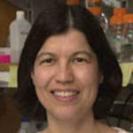Analysis of chromatin organization and epigenetic gene regulation in health and disease
We study epigenetic regulators using genetics, genomics and proteomics. The factors we study include the MSL dosage compensation complex in fruit flies, the Polycomb Group in both flies and humans, and a translocation oncoprotein, BRD4-NUT, that drives an aggressive form of squamous cell cancer in humans. The common thread is that each is strongly implicated in the creation of active or silent chromatin domains that are integral to the fidelity of gene regulation. One serious obstacle to understanding the interactions of such factors with additional proteins and RNAs on chromatin has been the trade-off between removal from the DNA, to allow purification, and the resultant loss of interactions with key partners in function. Therefore, we have adapted a crosslinking approach that allows us to affinity-purify fragmented chromatin with protein and RNAs attached, to avoid disruption of interactions that may only occur on DNA. After reversal of crosslinks, the DNA, protein, histone peptides, and RNA fractions can be separately analyzed using comprehensive sequencing and mass spectrometry. Our current results are providing us with a rich and comprehensive view of key epigenetic complexes bound to their chromatin templates.
An example is our recent work with BRD4-NUT, a translocation-encoded fusion protein that plays a defining role in NUT midline carcinoma (NMC). In collaboration with Christopher French’s lab at BWH, we discovered that nuclear foci containing BRD4-NUT protein correspond to extremely broad, cell type-specific, hyperacetylated chromatin domains in patient tissue and cell lines. These are much larger than typical activated regions or ‘super-enhancers’, ranging from 100 kb to 2 Mb. These ‘megadomains’ appear to reflect a pathologic, feed-forward regulatory loop in which hyperacetylation drives further bromodomain-dependent binding and aberrant transcriptional activity. The novelty of megadomains is that they spread from select pre-existing enhancers, surprisingly not enriched for recently described ‘super-enhancers’, to fill individual topologically associating domains (TADs). Although the selected TADs generally differ by cell type, the c-MYC and TP63 regions are targeted in all NMC patient cells examined to date. The ability to spread to fill whole regulatory compartments surrounding genes encoding proteins like MYC and p63 is likely to explain the extremely aggressive nature of NUT midline carcinoma.
Genetics
View full abstract on Pubmed
bioRxiv
View full abstract on Pubmed
Genes Dev
View full abstract on Pubmed
Mol Cancer Res
View full abstract on Pubmed
Biochemistry
View full abstract on Pubmed
Proc Natl Acad Sci U S A
View full abstract on Pubmed
Mol Cancer Res
View full abstract on Pubmed
